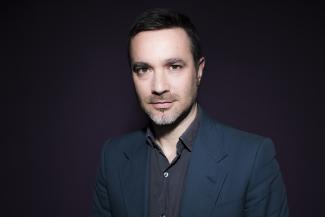The Transfert of Migrants : Which Links between the Migratory policies ans the Development of the Countries of Migration

Practical information
Breakfast Meeting with Jean-Pierre Garson, chef de la Division des économies non membres et des migrations internationales, OCDE, and Guillaume Almeras, associé-gérant de BGV Consulting, membre de l'Institut de Prospective et d'Etude pour la Méditerranée. Chaired by : Christophe Bertossi, Senior Research Fellow, Responsable for the "Migrations, Identities, Citizenship" Programme at Ifri.
The idea to link European migration policies to the development of the origin countries of migrants is not new but it has been emphasised at the beginning of the 2000's, overall with the "global approach" to migration. This results in so called "co-development" policies or in "migration management" agreements. Migrants are more and more considered as part of the solution to the economic problems of European countries (selective immigration policies) but also as a solution to the departure countries problems (as they generate increased amounts of remittances). In 2007, international migrants transferred 240 billion dollars towards developing countries. In this context, what role should be given to migrants in these "co-development" or "solidar development" policies? What tools could maximise the remittances efficiency? How could remittances contribute to the economic and social development of emigration countries on the long term?
Speakers
Other events

From Ambition to Action: Exploring Technological Partnerships with India
The 16th EU-India Summit, held on January 27th in New Delhi with European leaders António Costa, Ursula von der Leyen, and Prime Minister Narendra Modi, marks a significant milestone in deepening EU-India relations. At the same time, official bilateral visits from EU member states are on the rise, including that of the French President, who visited India in February to participate in the Artificial Intelligence Summit. As India asserts its technological ambitions and seeks to reduce its dependence on China, Europe is stepping up its efforts to diversify its strategic partnerships.

The Enlargement of the European Union: A Strategic Choice? France, the Western Balkans and the EU in an Uncertain Geopolitical Context
Russia’s war against Ukraine has brought the enlargement of the European Union back to the centre of European strategic debates. In this context, the Western Balkans have regained heightened visibility in discussions on the continent’s security, at a time when the international environment is marked by a growing number of destabilising factors.








